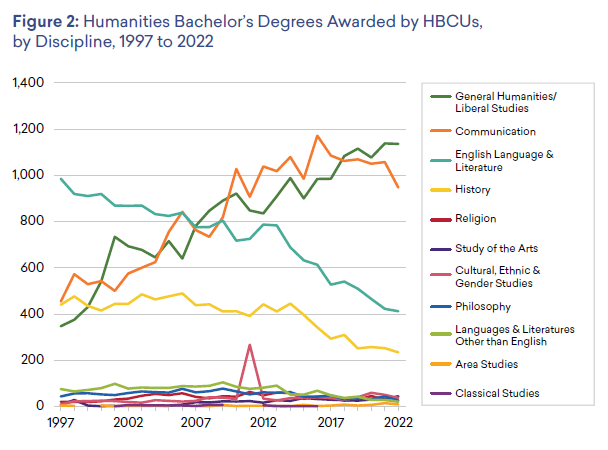Figure 2: Humanities Bachelor’s Degrees Awarded by HBCUs, by Discipline, 1997 to 2022
As these findings suggest, the number of bachelor’s degrees awarded in the category of liberal studies/ general humanities more than tripled from 1997 to 2022, rising from 347 to 1,136 (see figure 2). The category grew dramatically from 14.6% of all humanities degrees granted by these institutions in 1997 to 39.1% of the degrees awarded in 2022, surpassing all other subjects. In comparison, at other colleges and universities, this subject area accounted for 21.0% of humanities degrees—essentially unchanged from 1997. The number of communication degrees also increased substantially at HBCUs, from 454 in 1997 to 947 in 2022. In the latter year, they accounted for the second-largest share of humanities bachelor’s degrees awarded by HBCUs (32.6%). This substantial growth was similar to the trend at other colleges and universities, where communication is the most popular type of humanities degree (albeit with only a 26.8% share of completions).
Conversely, HBCUs have seen a significant decline in the number of degrees completed in most of the other humanities disciplines. Bachelor’s degrees in English language and literature had a particularly sharp decline, falling from 985 degrees in 1997 to 412 in 2022. (Their share of all humanities bachelor’s degrees granted by HBCUs shrank from 41.3% to 14.2% over the same period.) Degrees in languages and literatures other than English fell by more than half (from 75 to 20 degrees). The number of history and philosophy degrees also fell substantially (from 440 to 234 for history and from 43 to 26 for philosophy).
HBCUs stand out from other colleges and universities for the relatively large number of vocational degrees they award (primarily in social work and criminal justice). The number of degrees awarded in that category increased 39% from 1997 to 2022. Degree completions in health and medical sciences also increased substantially, rising 42% over the same period. But other vocationally oriented programs saw declines. Bachelor’s degrees awarded in education declined 36% from 1997 to 2022, while business and management degree completions dropped 10%. All other fields awarded more bachelor’s degrees in 2022 than they did in 1997, with the largest percentage increase occurring in the fine and performing arts (up 69.6%). For most fields, however, the more recent trend was downward, with only engineering and the natural sciences experiencing growth in degree completions over the past decade (rising by 54% and 18%, respectively, from 2012 to 2022).
